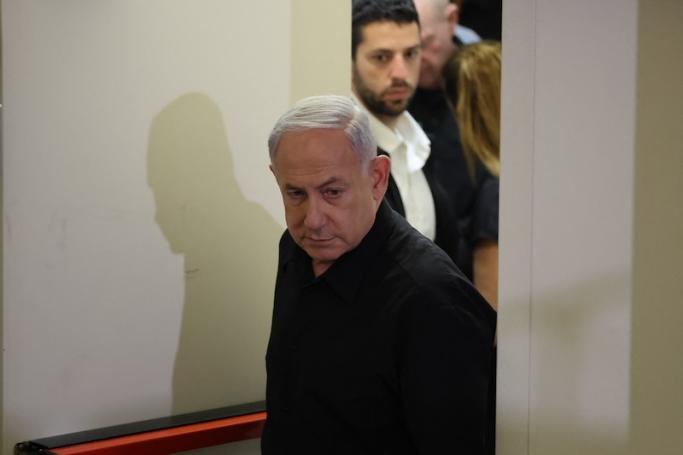Israelis, deeply divided since Benjamin Netanyahu returned to power last year, have united against Hamas in war, but experts predict the veteran leader will be fighting for his survival when the conflict ends.
In the shock that gripped Israel after Hamas's October 7 attacks, the country has closed ranks behind the military operation that the 74-year-old ordered to "crush" the Palestinian militants.
But according to experts, security lapses exposed by marauding Hamas gunmen could become the biggest -- and possibly fatal -- blow to Israel's longest-serving prime minister, already battling legal and political troubles.
"Support for Netanyahu and his coalition was draining even before October 7, and since the outbreak of war it has fallen much further," said Toby Greene, a politics lecturer at Israel's Bar-Ilan University and researcher at the London School of Economics.
"If an election were held now he would lose badly."
Beloved as "King Bibi" and "Mr Security" by his supporters and condemned as the "crime minister" by critics and protesters, Netanyahu has long dominated Israeli politics.
But the latest opinion polls suggest a drop off in support for the tough-talking Netanyahu and his right-wing Likud party.
Many are bitter over the lack of protection, especially Israelis living in communities near the Gaza border that bore the brunt of the attacks that Israeli officials say killed 1,400 people, mostly civilians.
Under Netanyahu, a former commando unit officer who has always projected himself as a resolute defender of Jews, the sense of security shared by most Israelis has been shattered.
- 'Every decision' –
While military and intelligence agencies have acknowledged security failures, Netanyahu has not accepted any blame for Hamas's surprise attack.
Netanyahu's allies have stayed quiet about his role, and some rivals have joined his war cabinet, defending the Israeli bombing campaign that the Hamas-run health ministry says has killed nearly 9,500 people in the besieged Gaza Strip.
Reuven Hazan, a political science professor at the Hebrew University of Jerusalem, called Netanyahu a "brilliant" politician now playing for time.
"He already knows that he is fighting for his survival and every decision he takes in this war is geared to ensuring his survival."
When asked if he would consider quitting, Netanyahu recently told a news conference: "The only thing I intend to have resigned is Hamas."
But Netanyahu, whose first term in office dates back to 1996, has been forced onto the defensive.
The leader of Israel's most right-wing government in history admitted he would have to give "answers" about the attacks, but only after the war is over.
And he has apologised for a since deleted social media comment accusing the intelligence services of failing to warn him of the Hamas threat.
To get the wily Netanyahu out of office, he will have to resign or lose the parliamentary majority held by the coalition of his party with far-right and ultra-orthodox Jewish parties.
Leading tech tycoon Amnon Shashua has said the Netanyahu administration must be "immediately" ousted over its "failures, dissonance and incompetence".
- 'Damaged' leader –
Pressure on Netanyahu had been building before the attacks, and experts say a showdown is just a question of time.
The premier, who has led Israel for nearly 16 of the past 27 years, is still fighting three corruption cases in court.
The nine months leading up to October 7 saw mass protests over his hardline government's divisive judicial overhaul that opponents called a threat to Israeli democracy.
Israel had been "ripping itself apart" before Hamas's attacks, said Hazan.
But "there is no politics now because of the war", he added.
"At some point politics will come back. Then there will be questions, and then the protests will come back."
When the war ends, the government is likely to order a commission of inquiry -- either a governmental one with relatively little power, or a more independent national commission.
If Netanyahu is found to be at fault over the attacks, his political problem could become critical.
The government has warned the war will take months and Netanyahu is not obliged to call an election for three years, but observers struggle to see him lasting that long.
"Everybody knows that he is damaged," according to Hazan, who said there were "signs" that coalition members "know that the game is up".
Polls indicate Israelis' preferred candidate was now centrist leader Benny Gantz, a minister without portfolio in the war cabinet who was in the opposition before the war erupted.
"Netanyahu's legacy has been shattered by both the division he has sown through the judicial overhaul and the multiple failures that enabled the October 7 attack," said Greene.
"Many Israelis consider these two issues to be linked."
AFP












